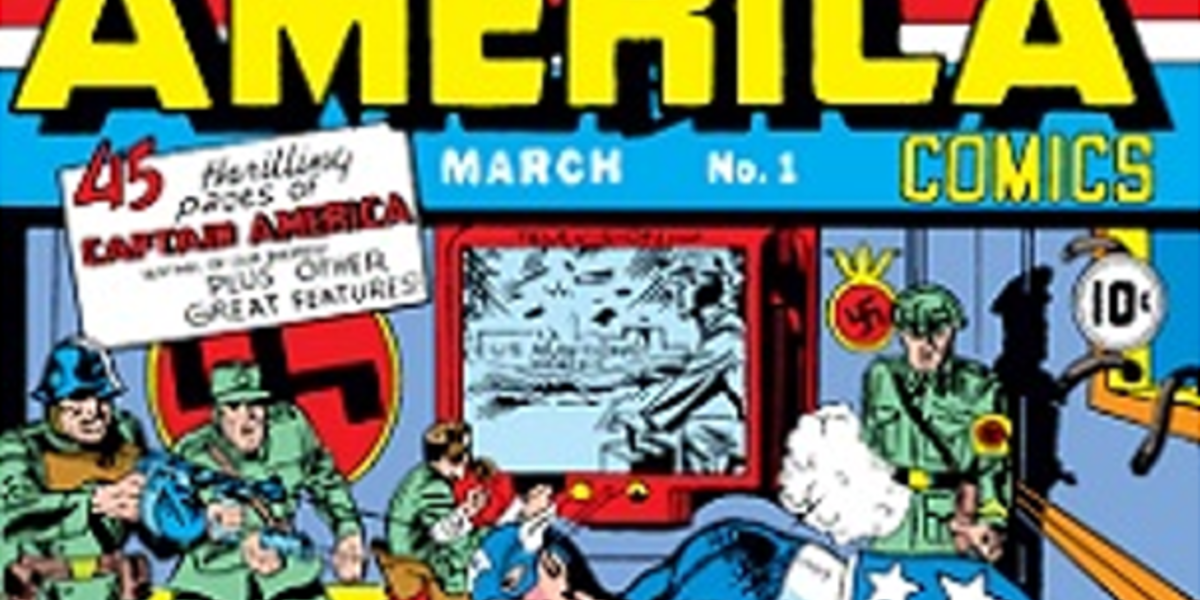That's kind of how I've thought of the character. I think some of the descriptions others have provided on this board are also good. But they're also not what Mackie said (even in his follow-up). Personally, I don't agree with the idea that "America" isn't one of the things Captain America represents.
Here’s some information from ChatGPT.
Captain America has always represented American ideals—justice, freedom, and equality—but he has often found himself at odds with the government, the public, or the nation’s prevailing attitudes. Here are some key examples from the comics where Steve Rogers opposed the will of the American people or the government:
1. “Captain America No More” (1987-1989, Captain America #332-350)
• When the U.S. government orders Steve Rogers to become a government operative under stricter oversight, he refuses, believing that Captain America should serve the ideals of the country, not the politicians in power.
• He gives up the shield and identity, leading to the rise of John Walker as the new Captain America (who is much more in line with the government’s harsher stance).
2. “The Secret Empire” (1974, Captain America #169-176)
• Steve Rogers uncovers a government conspiracy tied to a secret organization, which turns out to have connections to the highest levels of U.S. leadership.
• When he realizes that the President (implied to be Richard Nixon) is involved, he is disillusioned and briefly quits being Captain America, taking on the identity of “Nomad” to distance himself from a corrupt system.
3. “Civil War” (2006-2007, Civil War #1-7)
• Captain America refuses to support the Superhuman Registration Act, which requires heroes to reveal their identities and work under government oversight.
• The public largely supports the Act, believing it will make them safer, but Cap sees it as a violation of personal freedom and fights against Iron Man and the pro-registration side.
• His opposition makes him a fugitive, and he ultimately surrenders—not because he thinks he was wrong, but because he realizes the people no longer support him.
4. “Madbomb” (1976, Captain America #193-200)
• A wealthy group called the “Elite” uses a device called the Madbomb to turn average Americans into violent mobs, preying on their anger and frustrations.
• Cap fights against this manipulation, even though many ordinary people are caught up in the frenzy and essentially become his enemies.
5. “Truth: Red, White & Black” (2003)
• This limited series reveals that the U.S. government experimented on Black soldiers to perfect the super-soldier serum before Steve Rogers, echoing real-life historical events like the Tuskegee Syphilis Study.
• Steve is horrified when he learns about this hidden history and openly condemns the government for its actions.
6. “The Ultimates” (2002-2004, Ultimates #1-13)
• In the Ultimate Universe, Cap is more militaristic, but he still opposes decisions made by his own country, such as questioning America’s involvement in foreign conflicts.
• In one instance, he fights against U.S. forces when they align with corrupt leadership.
7. “Secret Empire” (2017, Secret Empire #0-10)
• This controversial storyline sees Cap brainwashed into leading Hydra, essentially betraying America.
• However, the “real” Steve Rogers (his true self, hidden away) fights against this corrupted version of himself, symbolizing a resistance against fascist ideologies.
8. “Man Without a Country” (1995-1996, Captain America #450-454)
• The U.S. government falsely accuses Steve of treason, stripping him of his citizenship and forcing him to go on the run.
• He continues to fight for justice despite being abandoned by the country he once served.
9. “Fear Itself” (2011, Fear Itself #1-7)
• When fear spreads across the world, many Americans lose hope and give in to terror.
• Cap stands firm, refusing to bow to mass hysteria, even as the people he fights for begin to doubt him.
10. “Captain America: Winter Soldier” (2005, Captain America #1-14)
• When he discovers that Bucky Barnes was brainwashed by the Soviets, Steve refuses to let the U.S. government or S.H.I.E.L.D. treat Bucky as an enemy.
• Many in power believe Bucky should be eliminated, but Steve insists on saving him and giving him a second chance.
In all these stories, Captain America serves as a symbol of moral conviction rather than blind patriotism. He stands for the ideal of America, even when the nation or its people stray from those values.





